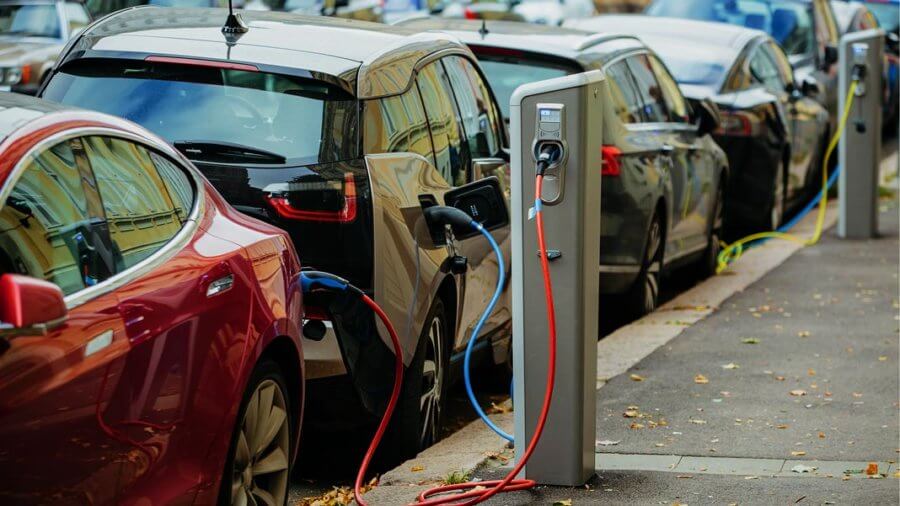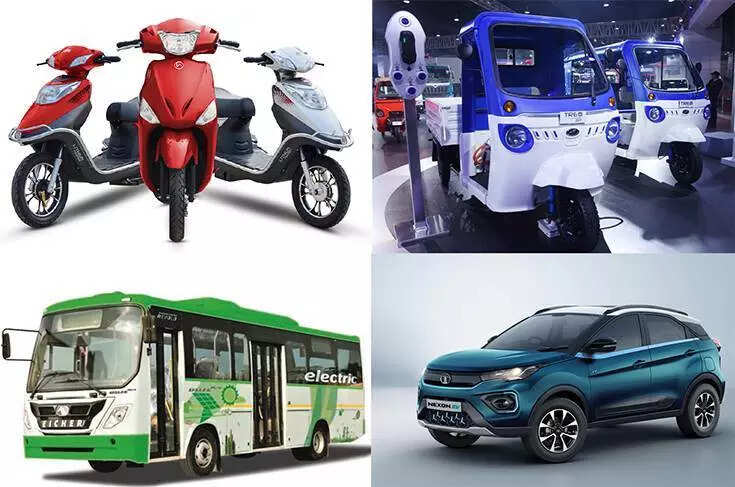Electric Vehicles in India: Driving Towards a Sustainable Future
India, with its rapidly growing population and expanding urban centers, faces significant challenges in terms of pollution, congestion, and energy security. In response to these challenges, the Indian government has made ambitious commitments to promote electric vehicles (EVs) as a sustainable transportation solution. In this blog post, we’ll explore the current state of electric vehicles in India, initiatives undertaken by the government and industry, challenges faced, and the road ahead for electric mobility in the country.
The Electric Vehicle Landscape in India: The adoption of electric vehicles in India has been steadily increasing in recent years, driven by several factors including environmental concerns, rising fuel prices, and government incentives. While the penetration of EVs is still relatively low compared to conventional vehicles, significant progress has been made in terms of awareness, infrastructure development, and policy support.
Government Initiatives and Policy Support: The Indian government has rolled out several initiatives and policies to promote the adoption of electric vehicles across the country:
- Faster Adoption and Manufacturing of Electric Vehicles (FAME) Scheme: Launched in 2015, the FAME scheme provides financial incentives for the purchase of electric vehicles and supports the development of charging infrastructure.
- National Electric Mobility Mission Plan (NEMMP): The NEMMP aims to achieve significant penetration of electric vehicles in India by 2030, with a focus on manufacturing, infrastructure, and technology development.
- State-Level Policies: Several states in India have introduced their own EV policies and incentives to encourage adoption, including subsidies, tax incentives, and exemptions from registration fees and road tax.
Challenges and Opportunities: Despite the progress made, the adoption of electric vehicles in India still faces several challenges:
- Infrastructure: The lack of adequate charging infrastructure remains a significant barrier to widespread adoption of EVs. Efforts are underway to address this challenge through the installation of public charging stations and incentives for private charging infrastructure.
- Cost and Affordability: The upfront cost of electric vehicles, particularly electric cars, is still higher than their gasoline counterparts. Battery costs, which account for a significant portion of the total cost of an EV, are gradually declining, but further reductions are needed to make EVs more affordable for the masses.
- Range Anxiety: Concerns about range anxiety, or the fear of running out of battery charge, are prevalent among consumers. Increasing the availability of fast-charging stations and improving battery technology can help alleviate these concerns.
- Consumer Awareness: Many consumers in India are still unfamiliar with electric vehicles and may have misconceptions about their performance, range, and charging infrastructure. Educating consumers about the benefits of EVs and dispelling myths is crucial to driving adoption.
The Road Ahead: Despite the challenges, the future looks promising for electric vehicles in India:
- Continued Government Support: The Indian government’s commitment to promoting electric mobility through policy support and incentives will play a crucial role in driving adoption.
- Technological Innovation: Advances in battery technology, electric drivetrains, and charging infrastructure will further enhance the performance, affordability, and convenience of electric vehicles.
- Industry Collaboration: Collaboration between government, industry, and academia is essential to address challenges related to infrastructure, technology, and consumer awareness.
- Sustainable Mobility Solutions: Electric vehicles are not only environmentally friendly but also offer opportunities for innovative mobility solutions such as ride-sharing, car-sharing, and last-mile connectivity.
Conclusion: Electric vehicles have the potential to revolutionize transportation in India, offering a cleaner, greener, and more sustainable alternative to conventional vehicles. With strong government support, technological innovation, and collaboration across sectors, India is well-positioned to lead the electric mobility revolution and drive towards a cleaner and more sustainable future.



